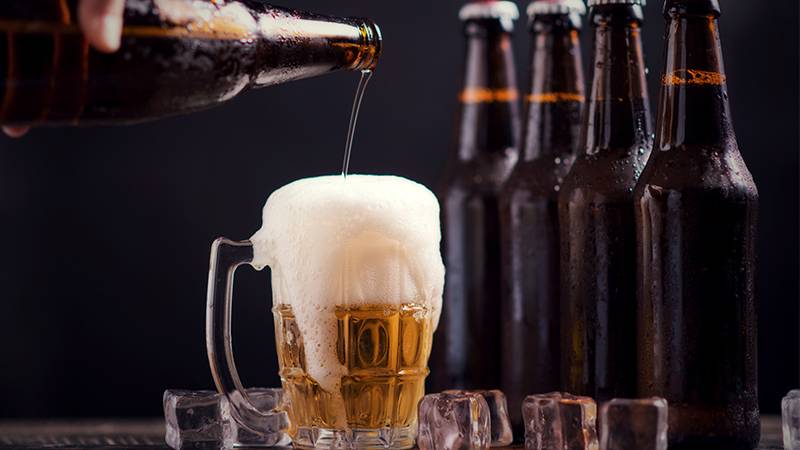For many, a cold beer is a simple pleasure. However, few have paused to ponder its environmental cost. Surprisingly, 70% of the climate footprint of a liter of beer arises from its packaging and transportation, as reported by the Impact CO2 carbon footprint calculator. But a groundbreaking innovation from Germany’s Neuzelle brewery may just change that.
Neuzelle’s owner, Stefan Fritsche, aims for the brewery to be recognized as the “first sustainable brewery in the world.” The secret? A game-changing beverage made from merely beer powder and water. This innovation could transform the way we consume beer. “This allows everyone to have their personal home brewery,” Fritsche excitedly shared with AFP, on the Neuzelle grounds close to Poland’s border.
This innovative beer preparation is straightforward: just mix the powder with water. Fritsche uses a handheld whisk to seamlessly combine the ingredients, ensuring a lump-free mix while achieving the iconic frothy beer head.
But what makes this concoction stand out is its sustainability. Shipping this powder incurs about 90% less cost than traditional beer. The result? A golden-colored, bittersweet brew that mirrors any standard beer, though it lacks alcohol and carbonation. However, Fritsche is already in the process of developing an alcoholic version, with plans to eventually introduce carbonation to replicate the classic beer experience further.
Though the idea of an alcohol-free beer might not appeal to everyone, Fritsche believes there’s a vast potential market. He cites hundreds of millions worldwide who primarily prefer non-alcoholic beverages. While he’s keen on unveiling an alcoholic iteration, the current version already addresses a considerable market segment.
So how does it work? The powder is mixed with water. Stefan uses a handheld whisk to quickly blend the ingredients to avoid lumps and create the frothy head we expect on a beer. It’s literally that simple.
This powdered format is above all cheaper and more sustainable, according to Fritsche. Powder costs around 90 per cent less to transport than traditional beer.
As Fritsche collaborates with investors to bring this innovative product to the mass market, he anticipates its launch in approximately four months. Primary markets targeted are African and Asian countries, where transporting powdered substances proves far more feasible and economical than shipping bottled beer. Besides, this powder format accelerates the production process, being much faster than the traditional two-month brewing cycle.
Yet, back in Germany, this invention faces potential challenges. According to Euronews, the country’s age-old ‘Reinheitsgebot’ – a 500-year-old beer purity law – dictates that only malt, hops, yeast, and water can be used in brewing. This leaves a question mark on whether powdered beer could even be advertised as “beer” within Germany. Commenting on the innovation, Benedikt Meier from the Bavarian Private Breweries Association opined that while it’s a commendable effort, it’s unlikely to threaten established breweries.
The exact formula behind Fritsche’s invention remains undisclosed. However, he firmly believes that such innovations are vital in a world desperately seeking sustainable answers. It’s worth noting that several major breweries already employ a gel-concentrate for beer transportation, which is diluted upon reaching its destination. This method already reduces transport emissions substantially. Yet, the powdered format pioneered by Fritsche has the potential to achieve even greater climate conservation.
In essence, as the world grapples with escalating environmental concerns, innovations like the powdered beer from Neuzelle might just hold the key to striking a balance between indulgence and sustainability.
More inspiring green news similar to this:


